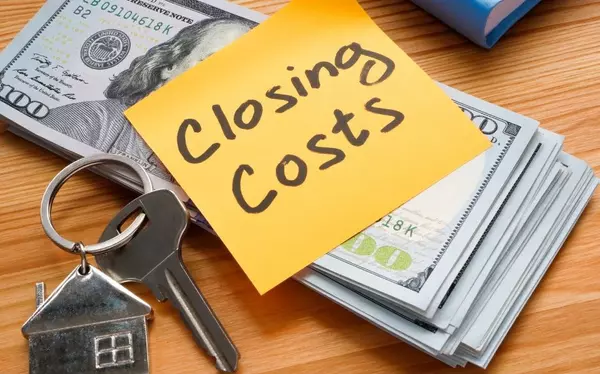Why is Earnest Money Important in Buying a House?

Why is Earnest Money Important in Buying a House?
In the whirlwind of the real estate market, where homes are snatched up as quickly as they’re listed, buyers and sellers alike are faced with many decisions. Amidst the flurry of paperwork and negotiations, one element stands out as a beacon of commitment and assurance: earnest money. Picture this: Jane and Tom, wide-eyed and hopeful, embark on their quest to find their dream home. They finally stumble upon it, nestled in a quaint neighborhood, radiating warmth and promise. Eager to secure this slice of paradise, they offer earnest money as a token of their earnestness. Little do they know, this seemingly small gesture holds immense weight in the grand scheme of their home-buying journey.
Earnest money, often overshadowed by more glamorous aspects of the home buying process, plays a pivotal role in establishing trust and commitment between buyers and sellers. It serves as a tangible expression of a buyer's sincerity, signaling to the seller that they are not merely browsing, but genuinely invested in acquiring the property. As we delve deeper into the significance of earnest money, we unravel its multifaceted importance, shedding light on its role in navigating the intricate landscape of real estate transactions.
Key takeaways:
- Earnest Money's Significance: In the frenetic world of real estate transactions, earnest money emerges as a crucial element, symbolizing commitment and trust between buyers and sellers. This financial gesture, often overlooked, holds immense weight in the home-buying journey, acting as a tangible demonstration of a buyer's earnestness.
- Understanding Earnest Money: Delving into the concept of earnest money unveils its historical roots and legal framework. Dating back centuries, earnest money has evolved to become a standardized practice governed by legal regulations, ensuring fairness and transparency in real estate dealings.
- Benefits for Buyers and Sellers: Earnest money offers numerous advantages for both buyers and sellers. For buyers, it provides credibility, financial investment, and practical assistance, aiding in securing their desired home. Conversely, sellers benefit from the security, compensation, and trust fostered by earnest money, ensuring a reliable and cooperative selling experience.
- Factors Influencing Earnest Money: The amount and terms of earnest money deposits are influenced by various factors, including market conditions, property value, and negotiation dynamics. Understanding these factors is essential for both buyers and sellers in navigating the complexities of real estate transactions effectively.
- Risks and Contingencies: Earnest money serves as a safeguard against potential risks in real estate transactions. Contingencies, risk mitigation strategies, and refund clauses play crucial roles in protecting buyers' earnest money deposits and ensuring a fair and transparent transaction process.
Understanding Earnest Money
Earnest money, in the realm of real estate transactions, refers to a sum of money provided by a potential buyer to the seller as a show of good faith and commitment towards purchasing a property. It serves as a tangible demonstration of the buyer's serious intent and dedication to the transaction, often accompanying the purchase offer as a deposit.
The concept of earnest money traces back centuries, rooted in principles of trust and integrity. In ancient times, earnest money was a customary practice in various cultures, symbolizing the buyer's genuine interest in completing a transaction. Over time, its significance has evolved, adapting to the changing dynamics of real estate markets and legal frameworks.
While the specifics may vary by jurisdiction, earnest money deposits are typically governed by legal regulations and contractual agreements. These regulations outline the rights and obligations of both buyers and sellers concerning earnest money transactions, ensuring fairness and transparency in real estate dealings. It's essential for both parties to understand the legal implications and requirements surrounding earnest money deposits to navigate the home buying process effectively.
Benefits for Buyers
Buyers in the real estate market wield earnest money as a powerful tool, offering them several advantages throughout the home buying process.
Firstly, earnest money serves as a tangible display of commitment. By providing a deposit, buyers signal to sellers their genuine interest in purchasing the property, thereby enhancing the credibility of their offer. In competitive markets where multiple bids are common, earnest money can set a buyer apart from the rest, giving them an edge in securing their desired home.
Furthermore, earnest money provides buyers with a financial stake in the transaction. By investing a portion of the purchase price upfront, buyers demonstrate their willingness to follow through with the deal. This financial involvement not only strengthens the buyer's position but also motivates them to diligently fulfill their obligations and meet deadlines.
Moreover, earnest money deposits are often credited towards the down payment or closing costs, serving as a practical financial resource for buyers. This reduces the burden on buyers' finances, making homeownership more attainable and facilitating a smoother transition into property ownership.
In summary, earnest money offers buyers credibility, financial investment, and practical assistance, making it a valuable asset in navigating the complexities of the real estate market.
Benefits for Sellers
In the intricate dance of real estate transactions, earnest money emerges as a beacon of security and assurance for sellers, offering several key benefits throughout the selling process.
Foremost, earnest money serves as a safeguard for sellers, providing them with peace of mind and confidence in the buyer's commitment. By requiring a deposit, sellers weed out less serious buyers, ensuring that only those genuinely interested proceed with the transaction. This minimizes the risk of deals falling through due to buyer indecision or lack of commitment.
Additionally, earnest money acts as compensation for the seller's time and effort invested in the transaction. If a buyer defaults on the agreement without valid cause, the seller may retain the earnest money as compensation for any losses incurred. This serves as a form of insurance against potential setbacks and protects sellers from financial harm.
Furthermore, earnest money fosters trust and transparency in seller-buyer relationships. The buyer's willingness to provide earnest money demonstrates their seriousness and integrity, laying the foundation for a positive and cooperative transaction experience. This trust-building aspect is invaluable in ensuring smooth negotiations and facilitating a successful sale.
In essence, earnest money offers sellers security, compensation, and trust, making it an indispensable tool in navigating the complexities of the real estate market.
Factors Affecting Earnest Money
In the intricate realm of real estate transactions, earnest money deposits are influenced by various factors, each playing a pivotal role in determining the amount and terms of the deposit.
Market Conditions:
The state of the real estate market has a significant impact on earnest money amounts. In a seller's market, where demand outweighs supply, earnest money deposits tend to be higher as buyers vie to stand out among competing offers. Conversely, in a buyer's market, where inventory exceeds demand, earnest money amounts may be lower, reflecting reduced competition.
Property Value:
The value of the property itself is another crucial factor influencing earnest money deposits. In general, higher-priced properties command larger earnest money deposits, proportionate to the purchase price. This is because sellers seek reassurance of the buyer's commitment, especially in high-value transactions where the stakes are elevated.
Negotiation:
Earnest money terms are not set in stone and can be subject to negotiation between buyers and sellers. Buyers may leverage earnest money as a bargaining chip, offering a higher deposit to strengthen their offer or requesting flexibility in earnest money terms to accommodate their financial situation. Conversely, sellers may negotiate earnest money amounts to align with their preferences and mitigate risk.
In essence, market conditions, property value, and negotiation dynamics collectively shape the earnest money landscape, influencing deposit amounts and terms in real estate transactions.
Risks and Contingencies
Navigating the real estate landscape can be a journey fraught with uncertainties, and earnest money serves as a buffer against potential risks. Understanding the contingencies associated with earnest money deposits is paramount for both buyers and sellers.
Contingencies
Contingencies are conditions outlined in the purchase agreement that allow buyers to reclaim their earnest money under certain circumstances. Common contingencies include financing, inspection, and appraisal. If the buyer is unable to secure financing, if significant issues are uncovered during inspection, or if the property appraises for less than the agreed-upon price, they may exercise their right to withdraw from the transaction and receive a refund of their earnest money deposit.
Risk Mitigation:
Buyers face various risks throughout the home buying process, from financial setbacks to unforeseen property issues. To mitigate these risks, buyers should conduct thorough due diligence, including inspections and assessments of the property's condition and market value. Additionally, buyers should ensure that their purchase agreement includes contingencies that protect their earnest money deposit in case the deal falls through.
Refund Clauses:
Including refund clauses in purchase agreements is essential for protecting buyers' earnest money deposits. These clauses specify the conditions under which the earnest money will be refunded to the buyer. By clearly defining the circumstances in which the earnest money deposit is refundable, refund clauses provide buyers with peace of mind and ensure fairness in the transaction.
Conclusion
In the fast-paced world of real estate transactions, earnest money emerges as a cornerstone of trust, commitment, and assurance for both buyers and sellers. Throughout this journey, we've explored the multifaceted role of earnest money, unraveling its significance in shaping the dynamics of home buying.
Earnest money, often overshadowed by more glamorous aspects of the process, serves as a tangible expression of intent, signaling the seriousness of a buyer's offer. It fosters trust and transparency, laying the groundwork for cooperative and successful transactions.
For buyers, earnest money offers credibility, financial investment, and practical assistance, giving them a competitive edge in the market and facilitating a smoother transition into homeownership. Sellers, on the other hand, benefit from the security, compensation, and trust that earnest money provides, ensuring a reliable and hassle-free selling experience.
In essence, earnest money is more than just a financial transaction; it's a symbol of commitment, integrity, and mutual respect in the real estate arena. As buyers and sellers embark on their respective journeys, earnest money stands as a beacon of reassurance, guiding them towards their shared goal of achieving homeownership.
Categories
Recent Posts










